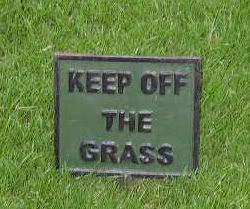What I am doing here
I was thinking today that it might be helpful for me to explain the larger picture of my DPhil thesis. As I mentioned earlier this week, I'm planning to look at apprenticeship of poor children as my topic for this term. However, the topic for my thesis is much larger than simply apprenticeship of the poor. In a broader sense, I am interested in trying to show the varied experiences of members of the "poor" in early modern English towns. Generally, historians have tended to lump the poor's experiences as a group in order to either explain them as a homogeneous mass or compare them to other generalized social groups (e.g. the elite, the middling sort). While this type of group generalization is very useful, I believe that it presents an oversimplified account of early modern society.
As most historians will admit (even though most scholarship would lead readers to think otherwise), members of the early modern poor did not experience life in an homogeneous way. The very nature of their lives was dynamic, piecemeal, and inconsistent, and changes to their situation could occur at any time due to a number of social, economic, and life-cycle factors. Usually, when I explain what I am doing to other historians they agree with my goal, but feel it will be incredibly difficult, if not impossible, to realize. Perhaps the response I hear most often is "are there really sources rich enough for that kind of topic?" and/or "have you really been able to trace specific poor people?" The answer to both questions is, yes. At least, from what I can tell so far, it seems 99% sure to be a "yes." I was able to do a similar (albeit smaller) project when I was located in Portland and had no access to the vast record resources here in England. If my project was a success in Portland, it would seem highly improbable that a similar project would fail now, especially since I have access to records I could only dream about before.
While I admit that it is difficult to find sources that reveal specific pictures of the lives of people traditionally "hidden" from history (like those who were socially and economically disadvantaged), it is not impossible. What it is is time-consuming, tedious, sometimes frustrating, but also extremely rewarding. From my experience, what seems to hold historians back from this kind of enquiry is the pessimistic or defeated attitude that it can't be done. However, as I've found, the reality is much more optimistic than the myth.


1 Comments:
I agree with you! The difficulty I think is not that there aren't sources but that they're scattered and time-consuming to track down, unless archives have been exceptionally well calendared. I have a lot of interesting material from court records - enough to make the experiences of the poor, poor relief, etc, the focus of a chapter of my PhD. And that was (in the main) just one kind of source, gathered in the course of the PhD research. Because there weren't any detailed calendars, it'd have been quite a long job if I'd been combing through those records just looking for the references to the poor, but certainly doable (especially in the Quarter Sessions files). What you want to do sounds great and perfectly feasible to me - not easy, but then that's true of a lot of topics...
(Just in case you'd like to read the chapter, I've put the whole thesis online (pdf file). It's chapter 7, if I remember rightly.)
Post a Comment
<< Home